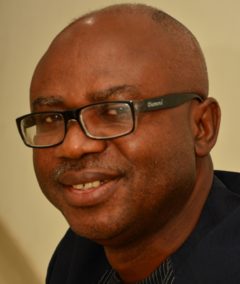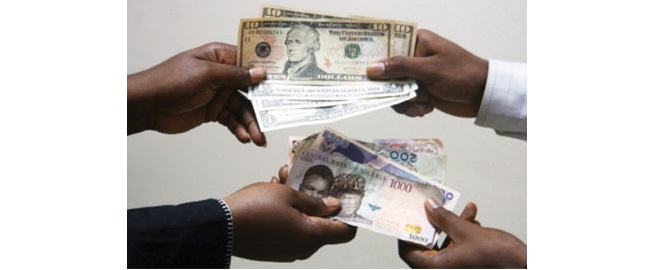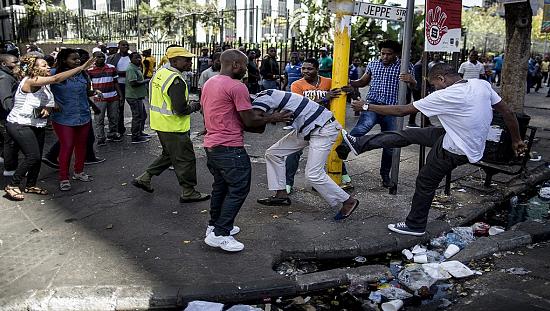All is not yet set for the general elections billed to take place in February. INEC can’t say it is ready when many eligible voters have not collected their voter cards. As I write this, about 40 per cent of the 68 million names on the voter register is not backed up by voter cards. Partly as a result of the electoral body’s failure to distribute the cards and partly owing to the voters’ refusal to pick their cards, it is likely that fewer than 25 million people will be eligible to cast their votes.
Many have not bothered to pick their cards – I don’t know who baptized them “permanent voter cards (PVCs)” – because INEC-prompted goings and comings have become too many. I’m one of those that nearly lost patience after queuing for two hours in the sun to get what has now become a “temporary voter card (TVC)”. It is an ordeal I have passed through since 1983 when I voted for the first time.
Every day, we remake English words in our own image. All the licensing agencies now have “temporary” and “permanent” documents which one can obtain by spending days and weeks in their offices. Last November I was issued a “temporary” driver’s licence after my image and finger prints were “captured” once again in Abuja. The licence has now expired but the “permanent” one has yet to come. Policemen stop me to ask for “roger” on discovering I use an “expired” licence. The banks reject it for identification of their customer.
I wonder what INEC means by “permanent” in this matter of voter card. The PVC of today is not too distinct from the one I was given in 1983. The current one looks more beautiful, apparently because of full colour, but voting at an election is not like participating in a beauty pageant. All the noise about computers, data capture, thumb print and card readers is meant to justify the billions of naira that have been spent on producing these election materials. I can bet that 50 per cent of whatever sum budgeted for them entered some people’s pockets through unconventional routes.
The voter card that will be near-authentic – not “permanent”, for “no condition is permanent” – in February is one that doesn’t get stolen or whose owner is not impersonated on Election Day. But I doubt if this PVC won’t perform even more poorly than the analogue one I was given 32 years ago. I have not seen any checks that would prevent Muhammad Ali, Mike Tyson, Barack Obama and Hillary Clinton from flying into Nigeria from America to “vote” on February 14 or 28. The 130, 000 card readers said to have been purchased will still malfunction on Voting Day; and, reaching for the “Doctrine of Necessity”, INEC will ask its officers on the field to compromise a little. TV cameras will capture a few polling stations in Abuja and Lagos where card readers will be performing magic, but they will not reach the hinterlands where elections will be massively rigged. Election materials may not arrive early in a majority of polling stations on February 14; everything else may be rushed to accommodate voters before deadline. So the card-reader operators may be rendered redundant. It has taken INEC four years to prepare for these elections, but it is still racing against time. This is Nigeria!
We learned, penultimate week, that only 38 million out of the 68.9 million registered voters had collected their PVCs. Nobody knows the status of the other 30 million now. What if politicians bought them from their custodians? They have been paying N500 or N1, 000 per card to peasants living in rural areas; will they spare the millions of cards waiting for their owners? In any case, the waiting cards could have been created by the same politicians for non-existent voters, so they would have no difficulty in claiming them.
INEC has got no antidote for rigging yet. And the politicians know it. When they were debating in the House of Reps and begging INEC to admit TVCs, they were merely making the electoral commission look good. The result sheets for many centres in rural areas are likely to get missing: party stalwarts may be busy filling them in hotel rooms, shrines, thick forests (including Sambisa), creeks and beaches. Hundreds of billions of naira used to buy these election materials have just been wasted.
A more grievous guilt haunts all of us that pretend to “elect” our leaders every four years. I say this because I have not seen “democracy” in the emergence of party candidates. Not when each presidential aspirant had to purchase a party’s form with N22m or N27m – money that is much more than an elected president’s legitimate income during his entire tenure. Not when each delegate to a party’s convention left Abuja and Lagos with dollar bills and naira in his/her pocket. Not when a campaigning team spends over N2billion weekly. INEC has never enforced its own rules on spending limit, nor have the anti-corruption agencies questioned anyone over the source of these naira rains.
In 2019, if Nigeria survives, a fresh voter registration will still take place. Fresh contracts for the production/purchase of card readers, voter cards, ballot boxes, “temporary” polling stations and others will still be awarded. INEC, likely to be led by a new chairman then, will issue new cards after requesting us to change the “permanent” ones to temporary VCs and back again to PVCs. The snag is that no-one will remember to remove the P in PVC even after it has been changed then.
Elections (no matter how organized) come and go – they are temporary, as are PVCs. Who, for instance, still has the voter card he used in 1983 or 1993 or 1999? I will offer a prize to anyone who can show me the card he used to vote in 2003 or even 2007.
Let politicians and their collaborators stop pulling wool over our eyes. Voter cards can’t be permanent, at least not in Nigeria where people destroy their cards after being frustrated at every round of elections.
Follow me on Twitter: @aniebonw
What Has Happened To Fuel ‘Subsidy’?
Those who claim they subsidise our fuel have not said anything since we entered the new year. They had promised to cut the “subsidy” by 50 per cent from January 1.
Of course, I know why they have suddenly become dumb: the fall in oil price. If we were enjoying a subsidy when the price of crude was $120 per barrel, common sense dictates that the subsidy, if it existed, must have gone by the time the price came to $70.Today it is less than $45.
But they still made allowance for “subsidy” to the tune of perhaps N980 billion in the 2015 budget. And our lawmakers have not removed a dime from their N150billion annual budget, as they debated it last week.
Time and again, we have proved that fuel subsidy never existed. It is money embezzled – money used to campaign for elections, buy private jets, charter aircraft, marry new wives, buy yachts in Italy, refresh Swiss banks and purchase arms for “militants” and “insurgents”.
No government could be crueler than Nigeria’s.
#
— By Aniebo Nwamu














